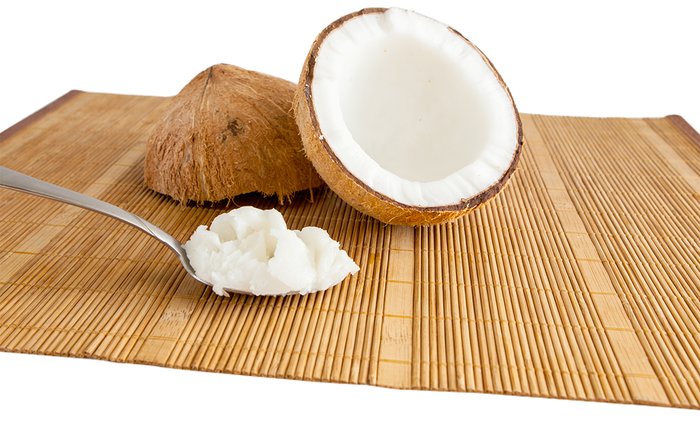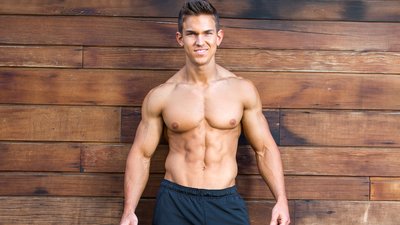When you make the decision to embrace ketogenic dieting—or "go keto"—you need fat and plenty of it. After all, all those calories that you used to get from carbs have to come from somewhere, right? And as Dr. Jacob Wilson pointed out in his "Ketogenic FAQ" article, eating excessive protein (at or above .67-.81 grams per pounds of body weight) can actually produce enough glucose to kick you out of the desired state of ketosis.
Where the fat comes from, well, that's up to you. For many people, bacon, avocado, and heavy cream can found on the menu eaten at almost any meal, and never do you need to think twice about choosing egg yolks again.
But even with the mouth-watering menu, the adaptation period to a ketogenic diet can be challenging. Many have felt compelled to quit before actually entering ketosis—which is when the pure fat-burning and benefits begin!
These three supplement staples can help you make it through the dreaded "induction flu" that many experience during the early days of ketogenic diet, and help you and come out stronger and leaner on the other side!
1. Electrolytes
Transitioning your body's preferred fuel sources from carbohydrates to fat can be tough. Not only does it take time to do so, but along the way, you're likely to have a few headaches, perhaps some nausea, and for some, day-long fatigue. This is the so-called "induction flu."
As carbs get kicked to the curb, so do key electrolytes such as sodium and potassium. To prevent headaches and fatigue, consider an electrolyte supplement.
If you're dehydrated or low on electrolytes, all of these symptoms are going to be worse. Compounding the quandary is that many people end up cutting out electrolytes such as sodium and potassium as their carb consumption goes down. Particularly if you're training hard during your induction, supplementing with electrolytes is a no-brainer.
2. Coconut Oil Or MCT Oil
Believe it or not, these aren't the same thing—not exactly, anyway.
Nuts and seeds are high-fat staples of ketogenic dieting, but given how much protein and carbs many of them contain, they can't be the only place you get calories. For instance, 1 ounce of almonds has 6 grams of protein and 6 grams of carbohydrates. Sometimes, a pure fat source, such as MCT oil, is a superior way to get calories, either as a straight supplement or mixed into a shake or your coffee.
MCTs (medium-chain triglycerides) provide 14 grams of fat per tablespoon. Unlike long-chain triglycerides—the type of fat most prevalent in foods—MCTs are a unique source of fat because they enter the blood stream quickly, which allows them to serve as a rapidly available fuel source for both the brain and muscles. Adding pure MCTs throughout your day can help you make the transition smoothly, while also providing steady energy.

Medium chain trigylcerides—found in coconut oil—act as a readily available fuel source for the brain and muscles.
Coconut oil, you've probably heard, is a great source of MCTs, as they make up about 60 percent of its fat content. It's also great to cook with, since it has a high flash point and a mild flavor.
Try adding coconut oil to a smoothie, pre-workout shake, or drizzling atop veggies, fish, chicken, or beef to hit that high fat intake. Coconut oil is also unique in that it readily switches between a solid and liquid state when it's stored at or below 76 degrees. For a creamy pudding, take liquid coconut oil, a splash of water, and mix with your favorite whey protein!
3. Fiber
Just because you're on Team Fat doesn't mean you don't need your veggies. If broccoli and greens aren't your favorite, well, that doesn’t bode well for keeping keto because these are some of the lowest-carbohydrate vegetables around.
If this is the case, consider adding a fiber supplement to your diet. Fiber will help to keep you regular and feeling full, aside from helping to support a healthy gut environment. The carb count in fiber supplements runs the gamut, so be sure to read labels to make sure it's not going to put you over your daily carb count.
Some current fiber supplements, like Now Nutrition's Fiber 3, are made with flax seed, meaning they have a relatively high fat content and not too many carbs.
4. Caffeine
Sorry to break it to you: The world won't wait for your brain makes the switch from running on carbs to running on fat. Rather than simply resigning yourself to sluggishly functioning the first few days of the ketogenic diet, consider slightly raising your caffeine intake, either through another cup of coffee or a caffeinated supplement like a pre-workout or fat-burner. It just might be the thing to keep both your spirits and your fat-burning high.

Caffeine enhances fat-loss and suppresses appetite, which makes it an ideal complement to a ketogenic diet.
If you plan on working out intensely during your transition, the performance benefits of caffeine will be especially helpful. Plus, caffeine enhances fat breakdown, making it a fat-loss friendly supplement to add to your ketogenic lineup.
5. Greens Supplements
You don't eat enough vegetables. It's that simple. I mean, let's face it, nobody eats enough vegetables, but the lack can be especially glaring when you open the fatty floodgates and embrace keto living. Take an honest look at your dinner plate and tell me I'm not right!

Cutting carbohydrates (even high-carb veggies) can make it difficult to hit your daily nutrient goals. A greens supplement can help get there.
Step one to rectifying this, of course, is to look for ways to get greens in. Toss a handful of spinach into your eggs. Have a low-carb veggie juice with your cheese snack. Eat a salad every day with dinner. And then, consider adding a greens supplement as well. No, this isn't a replacement for a well-balanced diet, but plenty of hard-training athletes swear by them for a reason. A scoop in your protein shake makes perfect sense. Don't worry, you'll get used to the color.

